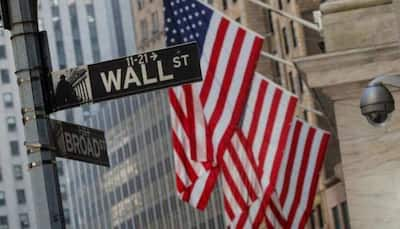The global market is feeling the heat after the U.S. announced new tariffs, triggering fears of a trade war. President Donald Trump’s move was quickly met with a strong response from China, leading to a sharp sell-off in U.S. markets. Wall Street took a major hit, recording its biggest drop since the COVID-19 pandemic.
The S&P 500 plunged 6 per cent following China’s retaliation, marking its worst week since March 2020. With tensions rising, concerns over a possible global recession are growing stronger.
The COVID-19 pandemic had a severe impact on the global economy. During this period, the Dow Jones dropped by 2,231 points, or 5.5 per cent, while the Nasdaq fell by 5.8 per cent, slipping more than 20 per cent from its record high in December.
On that Friday alone, the U.S. stock market saw record-breaking trading volumes, with 26.79 billion shares traded — surpassing the previous high of 24.48 billion shares on January 27, 2021. The Nasdaq plunged 962.82 points to close at 15,587.79, clearly indicating that the tech-heavy index has entered bear market territory, falling over 20 per cent from its December 16 peak of 20,173.89.
The Dow Jones Industrial Average plunged 2,231.07 points to close at 38,314.86, falling nearly 17 per cent from its record high of 45,014 set on December 4. According to Reuters, the S&P 500 also dropped sharply by 322.44 points, ending at 5,074.08 — its lowest level in 11 months.
Global stock markets have been on a steady decline ever since the announcement of new U.S. tariffs. President Trump’s retaliatory tariff policy has created a sense of fear among investors, sparking concerns about rising inflation. This growing uncertainty is adding pressure on financial markets worldwide.
Despite the reassurance, market sentiment remained weak. On Friday, only 12 out of the 500 companies in the S&P 500 index saw gains—while the rest witnessed a sharp decline. The sell-off wasn’t limited to stocks alone. Crude oil prices dropped to their lowest level since 2021, and even copper, a key material for economic growth, saw a price dip. Investors are increasingly worried that the ongoing trade war could further weaken the global economy.
China’s response to the U.S. tariffs has added to the pain for global markets. In a statement from Beijing’s Ministry of Commerce, it was announced that starting April 10, China will impose a 34 per cent tariff on all U.S. imports—matching the 34 per cent duty the U.S. placed on Chinese goods.
This move has shaken investor confidence, leading to heavy losses across markets. Chinese companies listed on U.S. stock exchanges were hit hard, with shares of major firms falling more than 7 per cent. The escalating tension between the two economic giants is now causing ripple effects across global financial systems.
Stay informed on all the , real-time updates, and follow all the important headlines in and on Zee News.










